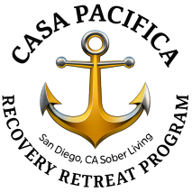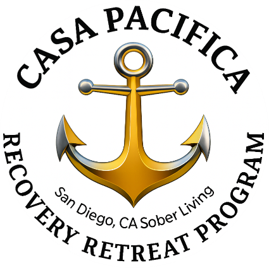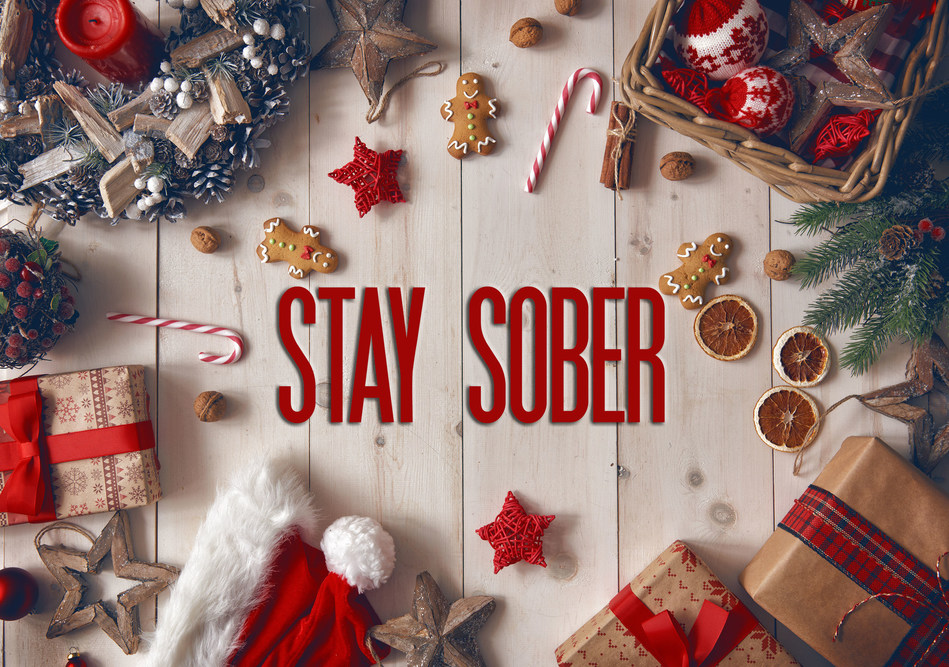Staying Sober Through the Holidays: Tools from Casa Pacifica Residents
At Casa Pacifica Men’s Sober Livingin San Diego, residents have developed powerful tools and traditions that help them stay grounded, connected, and sober during the holidays. Their collective experiences reveal a simple truth: recovery doesn’t pause when the calendar turns festive — it deepens.
This guide gathers real insights and proven strategies from Casa Pacifica residents who’ve learned how to navigate the holiday season with confidence and gratitude.
1. Acknowledge the Challenge — Don’t Minimize It
The first step in staying sober during the holidays is acknowledging that it’s not easy. Pretending everything feels “normal” can create unnecessary stress and guilt when emotions inevitably surface.
As one Casa Pacifica resident put it:
“The holidays used to mean drinking and escaping. Now I try to keep it simple — I acknowledge the hard stuff and reach out before it gets heavy.”
Acknowledging difficulty isn’t weakness; it’s self-awareness — a cornerstone of recovery. By admitting the season might bring temptation or sadness, you take power away from denial and prepare yourself to respond, not react.
Tool:
Write down potential triggers — people, places, or events — that could challenge your sobriety. Share this list with your sponsor, sober coach, or housemates. The goal isn’t to avoid life, but to enter it prepared.
2. Stick to Your Routine (Even When the World Doesn’t)
During the holidays, structure tends to disappear. Work schedules change, gyms close early, and family visits throw off normal rhythms. For someone in sober living, that disruption can be dangerous.
Casa Pacifica residents rely heavily on routine — morning meditation, nightly reflection, 12-step meetings, and house chores. These small, consistent actions build a sense of stability even amid chaos.
“If I keep my same morning routine — gratitude list, prayer, workout — the day goes fine,” says a long-time resident. “When I skip those, my mind starts wandering.”
Tool:
Create a Holiday Recovery Schedule:
- Wake up at the same time each day.
- Start mornings with prayer, meditation, or journaling.
- Commit to at least one recovery meeting daily (in person or online).
- Keep healthy meals and hydration on track.
- End each night with gratitude or reflection.
At Casa Pacifica, this structure helps residents replace old habits with healthy anchors — and those anchors don’t disappear just because it’s December.
3. Communicate Honestly with Family and Friends
Many relapses begin not at a bar, but at a family dinner table. Old dynamics, unresolved conflicts, or unspoken expectations can quickly stir up anxiety or resentment.
Being honest about your recovery — and what you need to stay safe — is key. Before attending gatherings, Casa Pacifica residents often call family members to set expectations.
“I tell them I don’t drink, I don’t want alcohol offered to me, and I might leave early,” one resident explained. “It’s not about them; it’s about me protecting my sobriety.”
Tool:
Plan conversations in advance. Use clear, kind language:
“I’m so glad to celebrate with everyone this year. Just so you know, I’m in recovery, and I won’t be drinking. I may step out if things get too busy, but I’m grateful to be part of it.”
This kind of communication sets healthy boundaries while reinforcing accountability. Most loved ones will respond with support — and for those who don’t, your recovery comes first.
4. Surround Yourself with Support — Stay Connected Daily
Isolation is one of the biggest risks during the holidays. When old friends reconnect or family members start drinking, it can feel easier to retreat. But solitude and silence are fertile ground for relapse.
Casa Pacifica’s community thrives on connection. Residents often attend extra meetings during December, host sober dinners, and check in with each other multiple times per day.
“We have each other’s backs,” says one man. “If someone’s struggling, we go for a walk or hit a meeting. Nobody has to white-knuckle it alone.”
Tool:
Build a Holiday Accountability Network:
- Identify 3–5 sober contacts (sponsor, housemates, recovery coach, family).
- Commit to daily check-ins — text, call, or meet up.
- Attend community events like AA/NA holiday marathons or beach meetings.
- Offer support to others; helping someone else can save you too.
Staying connected transforms the holidays from something to “survive” into something to share and celebrate.
5. Practice Emotional Sobriety — Feel, Don’t Fix
Sobriety isn’t just about avoiding substances; it’s about learning to sit with feelings. The holidays can bring grief for those lost, nostalgia for “better” times, or loneliness when family dynamics shift.
At Casa Pacifica, residents work daily on emotional awareness — learning to name feelings without judgment. When sadness or stress surfaces, they talk it out rather than shutting down.
Tool:
- Pause when emotional waves hit — breathe, don’t react.
- Journal or talk with a peer instead of numbing out.
- Use affirmations: “It’s okay to feel this. It will pass.”
- Focus on gratitude — list three things daily that recovery makes possible.
Emotional sobriety gives you the freedom to experience the season honestly — both the joy and the pain — without losing control.
6. Create New, Sober Traditions
Let’s be honest — many holiday traditions used to revolve around alcohol. So it’s crucial to replace old rituals with new, meaningful ones that support your new life.
At Casa Pacifica, residents often:
- Host a sober Friendsgiving dinner
- Volunteer at local shelters or food drives
- Go on morning beach walks instead of late-night parties
- Watch holiday movies together after meetings
- Bake, cook, or create art as stress relief
“The first year, I thought I’d miss out. Now I realize I was missing out before. Real memories don’t need a buzz,” shared a resident celebrating his second sober Christmas.
Tool:
Choose one new sober holiday tradition each year. Something small but meaningful — and repeat it annually. Over time, you’ll build your own holiday legacy rooted in recovery, not regret.
7. Have Relapse Prevention and Exit Strategies
No matter how prepared you are, certain gatherings will test your resolve. Having a clear relapse prevention strategy and a smart exit strategy can make all the difference.
Casa Pacifica residents use simple, effective plans like:
- Driving themselves to events so they can leave early.
- Scheduling a phone check-in midway through a party.
- Attending events with another sober friend.
- Bringing a non-alcoholic drink to stay comfortable and avoid questions.
“My sponsor taught me: never go in without a way out,” says one resident. “I always have my car keys and my support list. That way, I’m never stuck.”
Tool:
Before attending any event, answer these three questions:
- What’s my plan to get there and leave safely?
- Who can I call if I feel triggered?
- What meeting or support am I attending afterward?
Preparedness is empowerment — it allows you to stay present while keeping your sobriety protected.
8. Give Back — Service Keeps You Sober
One of the most consistent messages from Casa Pacifica residents is that service work changes everything. When you help others, your own worries lose power.
During the holidays, residents often serve meals, collect donations, or sponsor newcomers at local meetings. These acts of kindness ground them in gratitude and remind them of how far they’ve come.
“I used to spend holidays thinking about myself. Now I spend them helping others — and that’s where the peace comes from.”
Tool:
- Volunteer at a local shelter, food drive, or recovery event.
- Offer rides to meetings or check in on a newcomer.
- Write a letter of gratitude to someone who supported your sobriety.
The holidays aren’t about perfection — they’re about connection. Serving others turns potential stress into spiritual growth.
9. Focus on Progress, Not Perfection
Sobriety isn’t a straight line, and the holidays often test that reality. You might feel irritable, lonely, or overwhelmed. That doesn’t mean you’re doing recovery wrong — it means you’re human.
Casa Pacifica’s residents practice progress, not perfection. Instead of judging feelings or mistakes, they celebrate small victories — choosing a meeting over a party, calling for help instead of isolating, saying no with confidence.
Tool:
At the end of each day, reflect:
“What did I do right today? What did I learn? How will I grow tomorrow?”
Those reflections create momentum that carries you far beyond the holiday season.
10. Start the New Year with Intention and Gratitude
January 1 isn’t just another day — it’s an opportunity to reset, refocus, and recommit. Casa Pacifica residents use the turn of the year to set recovery goals that build purpose.
“Each New Year sober is a miracle. I make a gratitude list and plan how to serve others. That’s my celebration.”
Tool:
- Write three recovery goals for the next year.
- Share them with your sponsor or peers.
- Express gratitude for your progress, not your perfection.
Ending the year sober isn’t just an accomplishment — it’s a foundation for every good thing that comes next.
Final Thoughts: You’re Not Alone
If you’re facing the holidays in early recovery, remember — you’re not alone. The men at Casa Pacifica are living proof that with the right mindset, structure, and support, it’s possible not only to stay sober but to actually enjoy the season.
Lean on your community. Stay honest. Keep showing up.
As one resident said best:
“The holidays used to be something I dreaded. Now they remind me of everything I have — peace, friends, and another day sober.”
From all of us at Casa Pacifica Men’s Sober Living in San Diego — we wish you a joyful, peaceful, and sober holiday season. Contact us directly if there’s anything we can do to help make this your best holiday season yet.









